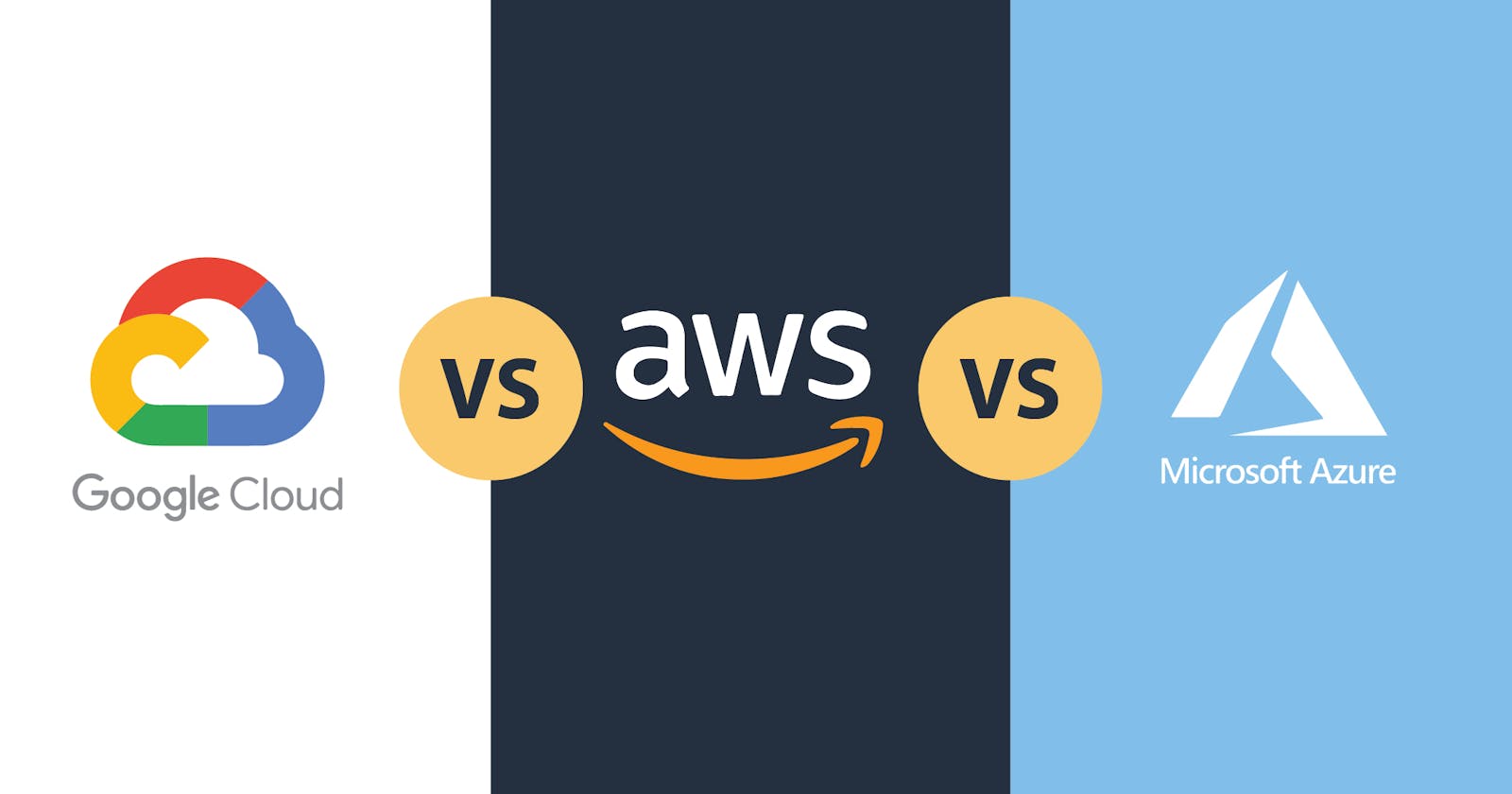Cloud computing is a buzzword nowadays and is considered as the next big thing in the IT industry. With cloud computing, businesses can store, manage and process their data on the cloud, which provides many benefits such as scalability, cost-effectiveness, reliability, and flexibility.
In the cloud computing world, Amazon Web Services (AWS) and Google Cloud Platform (GCP) are two of the most popular cloud computing providers. In this technical documented article, we will compare GCP and AWS on various parameters such as pricing, services, features, and performance.
Pricing
Pricing is a crucial factor when it comes to cloud computing services. Both AWS and GCP offer various pricing models such as pay-as-you-go, reserved instances, and spot instances. AWS charges based on the number of resources used, while GCP charges based on the number of requests made.
For example, if you have an EC2 instance running in AWS, you will be charged for the instance hours used, storage, and data transfer. On the other hand, if you use a VM instance in GCP, you will be charged based on the number of CPU and memory resources used, as well as the network bandwidth.
AWS offers a free tier for new customers, which includes certain services that can be used for free for up to 12 months. Similarly, GCP offers a free tier, which includes various services such as computing, storage, and networking, that can be used for free for up to 12 months.
Services and Features
Both AWS and GCP offer a wide range of services and features. AWS offers more than 200 services, including computing, storage, databases, networking, and analytics. GCP offers more than 100 services, including computing, storage, databases, networking, and machine learning.
AWS is known for its mature and well-established services such as EC2, S3, RDS, and Lambda. On the other hand, GCP is known for its innovative services such as BigQuery, Kubernetes, and App Engine.
One of the key differentiators between AWS and GCP is their approach to machine learning. GCP offers more advanced machine learning services, such as AutoML and TensorFlow, which are easier to use and require less expertise. AWS, on the other hand, offers more traditional machine learning services, such as SageMaker and Rekognition, which require more expertise.
Performance
Performance is another crucial factor when it comes to cloud computing services. Both AWS and GCP offer high-performance computing options, such as GPU instances, high-performance networking, and specialized storage options.
AWS offers a wide range of EC2 instance types, including general-purpose, compute-optimized, memory-optimized, and storage-optimized instances. GCP offers similar instance types, such as standard, high-memory, and high-CPU instances.
Both AWS and GCP offer content delivery networks (CDNs) for faster content delivery. AWS offers Amazon CloudFront, while GCP offers Google Cloud CDN.
Code Example:
To give an idea of how to use AWS and GCP services, let's take an example of deploying a web application to AWS and GCP.
Deploying a web application to AWS:
Create an EC2 instance with Amazon Linux 2 AMI.
Install Apache and PHP on the instance.
Upload the web application files to the instance.
Configure the security group to allow HTTP traffic.
Access the web application using the public IP address of the instance.
Deploying a web application to GCP:
Create a Compute Engine instance with Debian 10 as the operating system.
Install Apache and PHP on the instance.
Upload the web application files to the instance.
Configure the firewall to allow HTTP traffic.
Assign a static IP address to the instance. 6. Access the web application using the static IP address of the instance.
Here is an example code for deploying a web application to AWS using AWS CLI:
graphqlCopy code# Create a new EC2 instance
aws ec2 run-instances --image-id ami-0c55b159cbfafe1f0 --count 1 --instance-type t2.micro --key-name MyKeyPair --security-group-ids sg-1234567890123456
# Install Apache and PHP on the instance
ssh -i MyKeyPair.pem ec2-user@ec2-203-0-113-25.compute-1.amazonaws.com
sudo yum update -y
sudo yum install -y httpd24 php56 php56-mysqlnd
# Upload the web application files to the instance
scp -i MyKeyPair.pem /path/to/web/files ec2-user@ec2-203-0-113-25.compute-1.amazonaws.com:/var/www/html/
# Configure the security group to allow HTTP traffic
aws ec2 authorize-security-group-ingress --group-id sg-1234567890123456 --protocol tcp --port 80 --cidr 0.0.0.0/0
# Access the web application using the public IP address of the instance
http://ec2-203-0-113-25.compute-1.amazonaws.com/
Here is an example code for deploying a web application to GCP using gcloud CLI:
perlCopy code# Create a new Compute Engine instance
gcloud compute instances create my-instance --image-project debian-cloud --image-family debian-10 --machine-type n1-standard-1 --zone us-central1-a --tags http-server
# Install Apache and PHP on the instance
gcloud compute ssh my-instance --command "sudo apt-get update && sudo apt-get install -y apache2 php7.3"
# Upload the web application files to the instance
gcloud compute scp /path/to/web/files my-instance:/var/www/html/
# Configure the firewall to allow HTTP traffic
gcloud compute firewall-rules create allow-http --direction=INGRESS --action=ALLOW --rules=tcp:80 --source-ranges=0.0.0.0/0 --target-tags=http-server
# Assign a static IP address to the instance
gcloud compute instances create my-instance --address my-static-ip --zone us-central1-a
# Access the web application using the static IP address of the instance
http://my-static-ip/
AWS is a more mature and established provider, with a wide range of services and features. GCP, on the other hand, is known for its innovation and advanced machine learning services. When it comes to pricing, both AWS and GCP offer various pricing models and a free tier for new customers.
Finally, performance is also a crucial factor, and both AWS and GCP offer high-performance computing options. With this article, we hope to have provided some valuable insights into the comparison between AWS and GCP.
Important Links:
